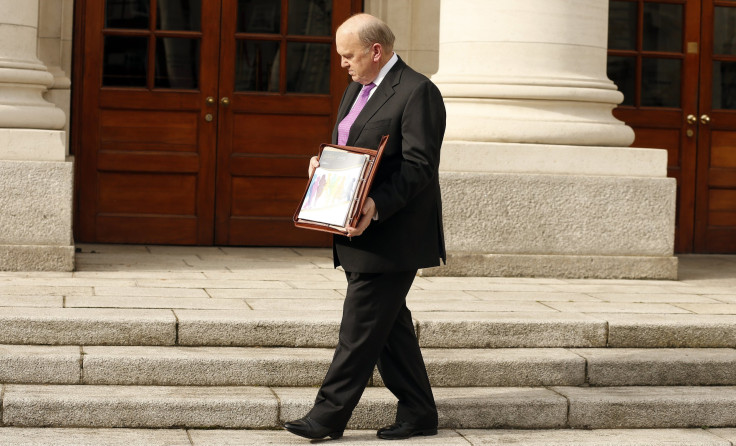Ireland To Close Tax Loophole That Saves Billions For Apple, Google, Facebook

Under pressure from Brussels to fall in line with European Union rules on subsidies, Ireland will eliminate a tax loophole that has allowed U.S. tech giants and other multinationals to cut billions of dollars from their tax bills. Apple, Google and Facebook are among the companies that could be significantly impacted by the change.
Ireland’s finance minister, Michael Noonan, told the country’s parliament on Tuesday that he would phase out the so-called double Irish tax break. The practice has allowed companies to establish secondary subsidiaries in Ireland that effectively pay no corporate taxes.
“I am abolishing the ability of companies to use the ‘double Irish’ by changing our residency rules to require all companies registered in Ireland to also be tax-resident,” Noonan said. The changes will not come fully into effect until 2020.
Ireland’s decision to amend its tax laws comes amid efforts by the EU to rein in member states it feels are positioning themselves as tax shelters, at the expense of the union as a whole. The EU has said that corporate tax-avoidance schemes cost the region about $1.3 trillion per year in lost revenue.
Earlier this month, the European Commission announced it was investigating Amazon’s tax status in Luxembourg. Investigators claim the subsidiary pays artificially low taxes of less than 1 percent on profits that Amazon earns throughout Europe.
“National authorities must not allow selected companies to understate their taxable profits by using favorable calculation methods,” said Joaquin Almunia, the European Commission’s vp for competition policy, in a statement Oct. 7. “It is only fair that subsidiaries of multinational companies pay their share of taxes and do not receive preferential treatment,” said Almunia.
The “double Irish” and similar schemes, though legally questionable, are relatively simple in concept. In a typical arrangement, a subsidiary in a low-tax region will charge more highly taxed divisions an inflated rate for internally supplied goods and services. The practice lowers tax liabilities for the latter while shifting profits to units in tax havens.
In its most recent quarter, Apple paid an effective tax rate of 26.1 percent on profits of $7.7 billion, according to filings with the Securities and Exchange Commission. The rate was well below the federal income tax rate of 35 percent because a substantial portion of the company’s revenues are generated by offshore subsidiaries, including operations in Dublin.
International tax experts say the EU’s clampdown may have some companies looking to set up shop elsewhere. “They will look for alternatives in other jurisdictions which allow for similar loopholes, as taxing authorities continue to play a game of cat and mouse with the multinationals,” said Jeffrey Katz, managing partner at the JDKatz law firm in Bethesda, Maryland.
Katz said U.S. companies’ search for international tax havens won’t end until Congress passes legislation that would make revenues earned through avoidance schemes taxable by the IRS. “Until the U.S. is willing to embrace major tax reform to close the loop, this game is still afoot,” Katz said.
© Copyright IBTimes 2024. All rights reserved.






















